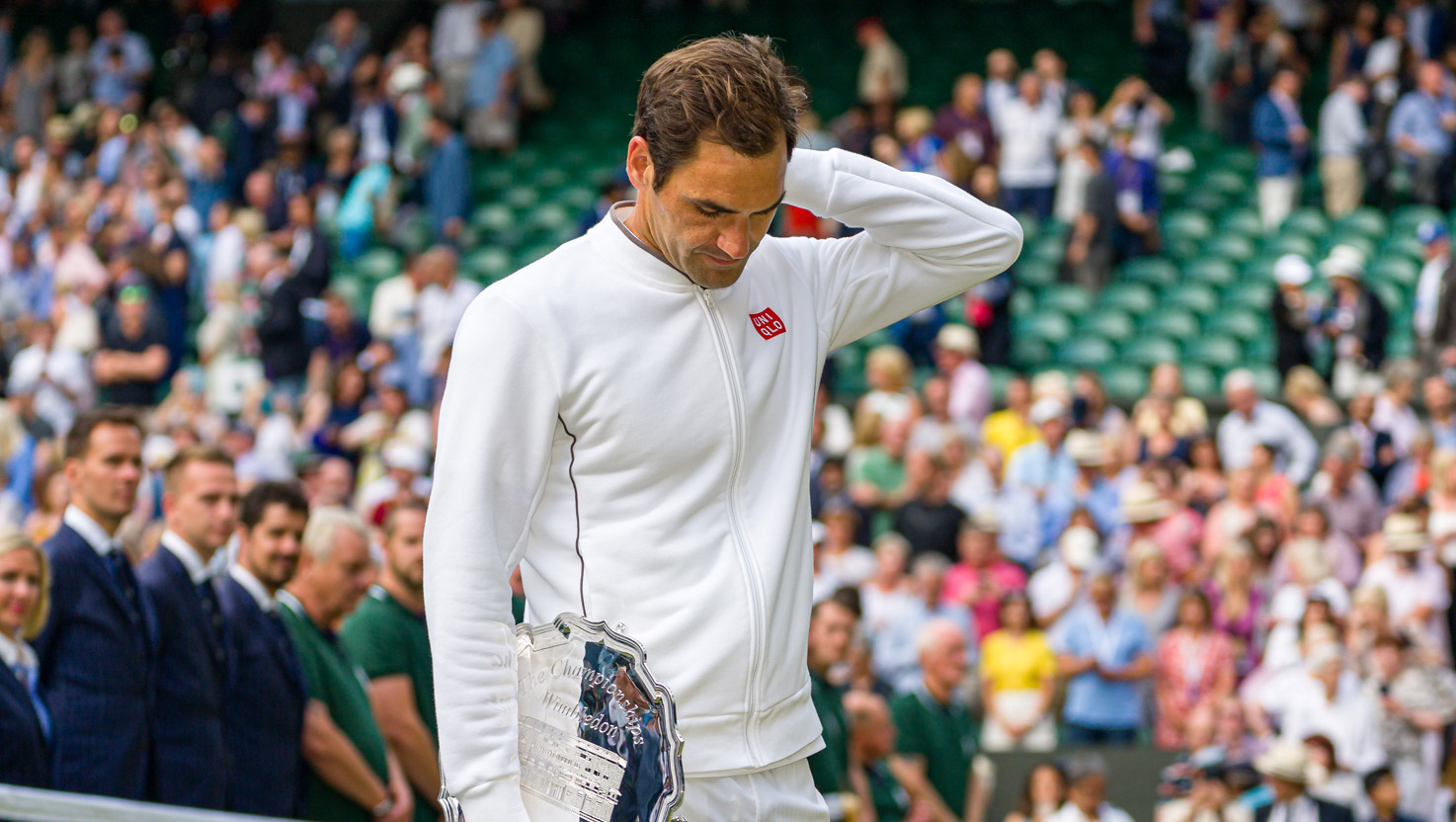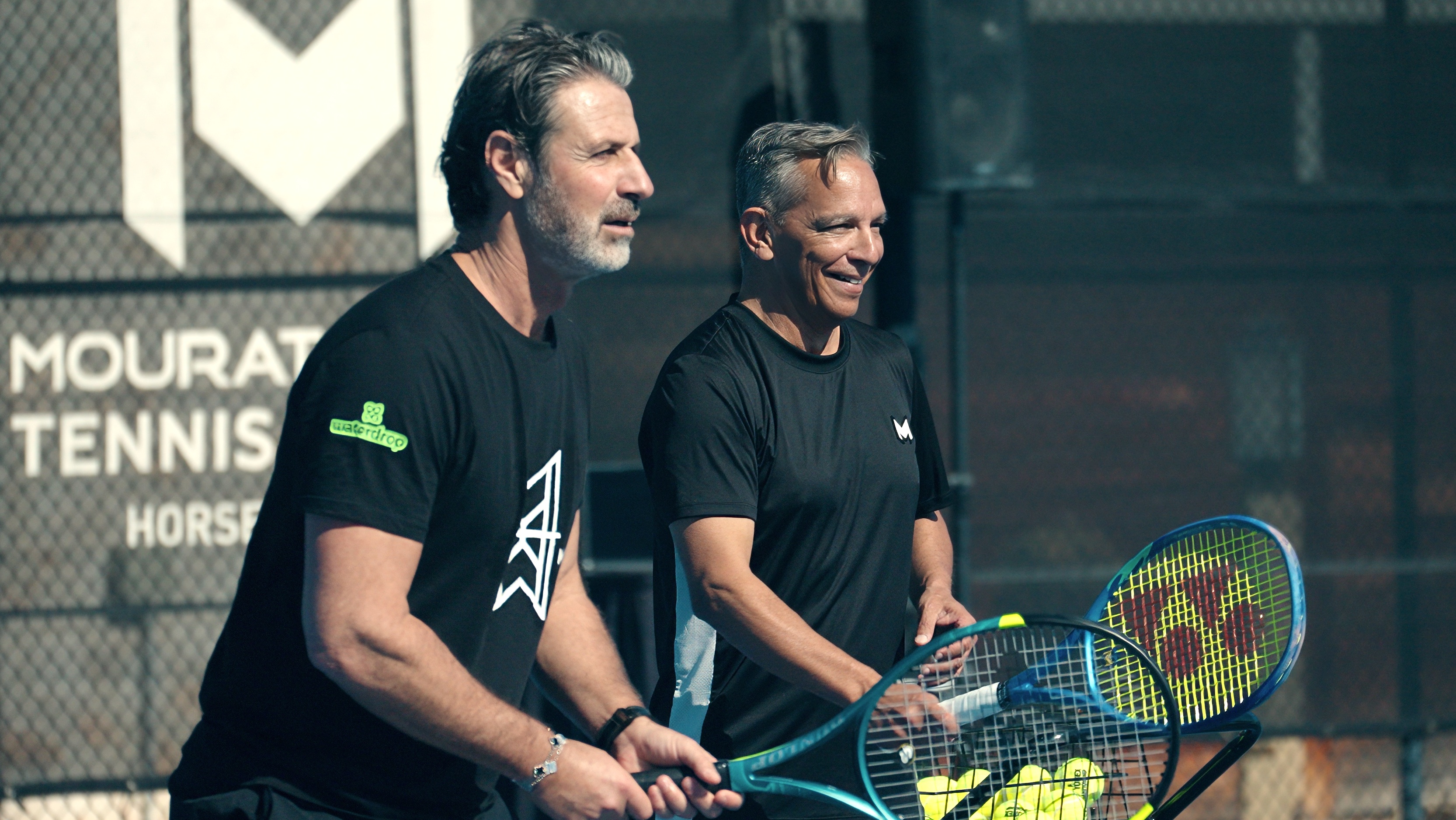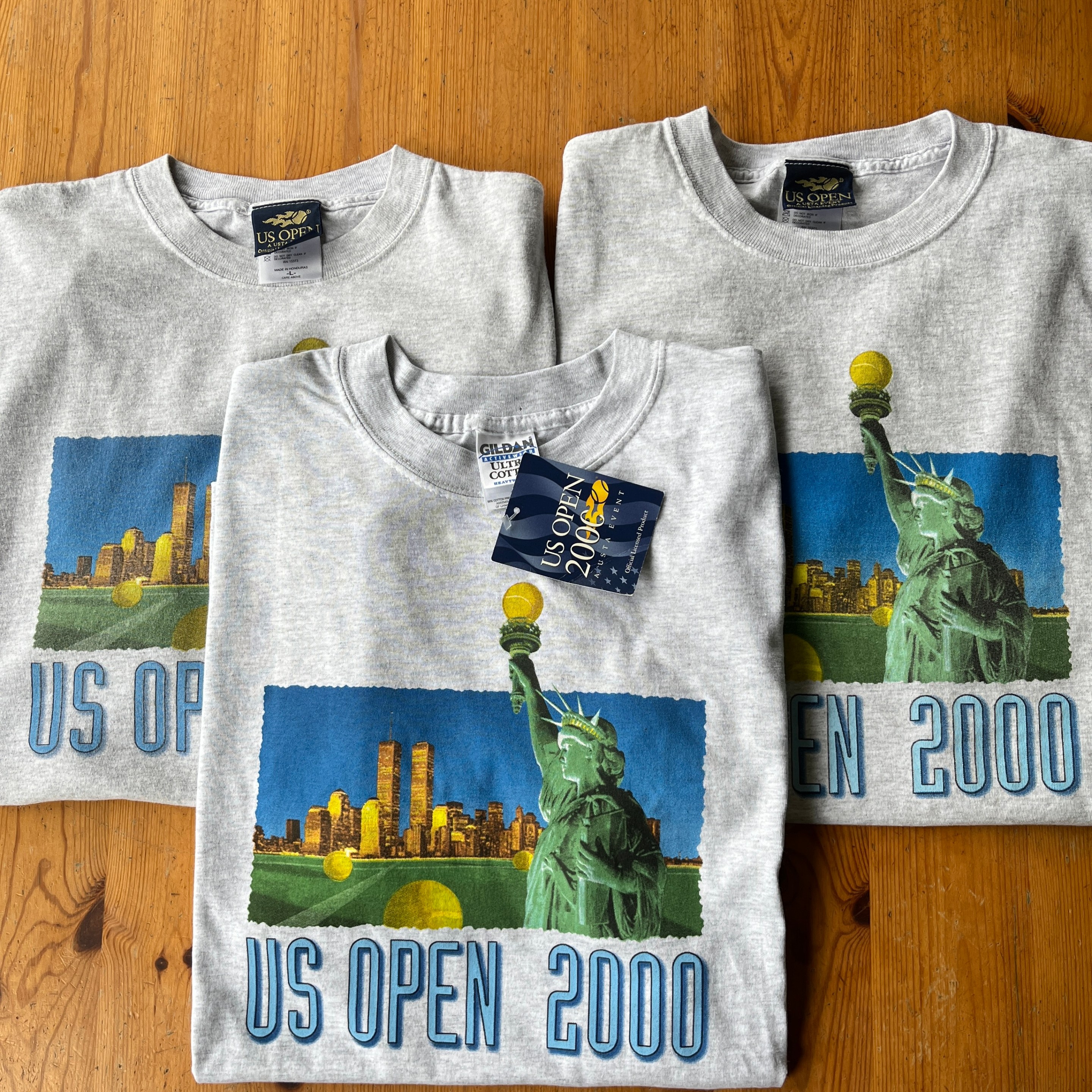[vc_custom_heading text="Book review: The Last Days of Roger Federer by Geoff Dyer" font_container="tag:h5|font_size:25px|text_align:center"][vc_empty_space height="20px"]
By Joel Drucker
[vc_empty_space height="15px"]Based on the premise of Geoff Dyer’s new book, The Last Days of Roger Federer, you’d think I’d have been smart enough to have scheduled our interview closer to sunset. As Dyer writes, “It seemed important that a book underwritten by my own experience of the changes wrought by ageing should be completed before Roger’s retirement, in the long twilight of his career.”
But instead of a dusky encounter in a dimly lit bar, we are sitting on a park bench at 3:30 in the afternoon on a sunny spring Los Angeles day, amid a set of public tennis courts located a two-minute walk from the Pacific Ocean. Dyer, an author of 18 books with such intriguing titles as Yoga for People Who Can’t Be Bothered to Do It and Out of Sheer Rage: Wrestling With D.H. Lawrence, has loved tennis since his schoolboy days of the ’70s in Great Britain. For the past eight years, Dyer has lived in Los Angeles, where he teaches at the University of Southern California and savors his twice-weekly tennis dates. “The glow of those 4 hours suffuses the whole week,” he writes. As Dyer told me, tennis is “as California as taking psychedelics.” But one twist of recent times is that elbow surgery has kept him off the courts, an exile from the game that naturally triggers deeper concerns about mortality.
Call this book with a provocative, tennis-themed title one that is scarcely about tennis. Or maybe it has everything to do with tennis—that is, if you’re willing to enter the elastic mind of a writer who loves to frolic in the field of ideas as freely as Federer deploys his unsurpassed array of shots.
“The essence of my character—my idea of myself—is that I am a dog,” writes Dyer. “If you keep throwing the ball for me I’ll chase after it and while I am chasing my tail will be wagging and I’ll be happy.” Dyer is equally nimble when it comes to chasing after ideas, his book exploring the near-midnight stage of a great many artists and thinkers, including British poet Philip Larkin, singer-songwriter Bob Dylan, composer Beethoven, rock band the Doors, and the philosopher Friedrich Nietzsche. Let it be noted that while Dyer usually refers to others by their last name, Federer to him is “always and only Roger.”
You’re not likely to find another writer who, in the course of a brief analysis of the 2010 Wimbledon marathon played by John Isner and Nicholas Mahut, alludes to World War I, Larkin, a 1969 movie about a dance marathon, a Muhammad Ali–Joe Frazier fight, and the World Cup. “What kept people watching,” Dyer writes about the Isner-Mahut epic, “was the fact that the whole thing was never more than a few minutes—and often only a few seconds, just one more point—from being over, done, and dusted. The lifelike peculiarities of the tennis-scoring system mean—or meant now that there is a fifth-set tiebreak—that sudden death and perpetual extension are inextricably paired.” [vc_column width="1/6"][vc_column width="2/3"][vc_empty_space height="15px"]
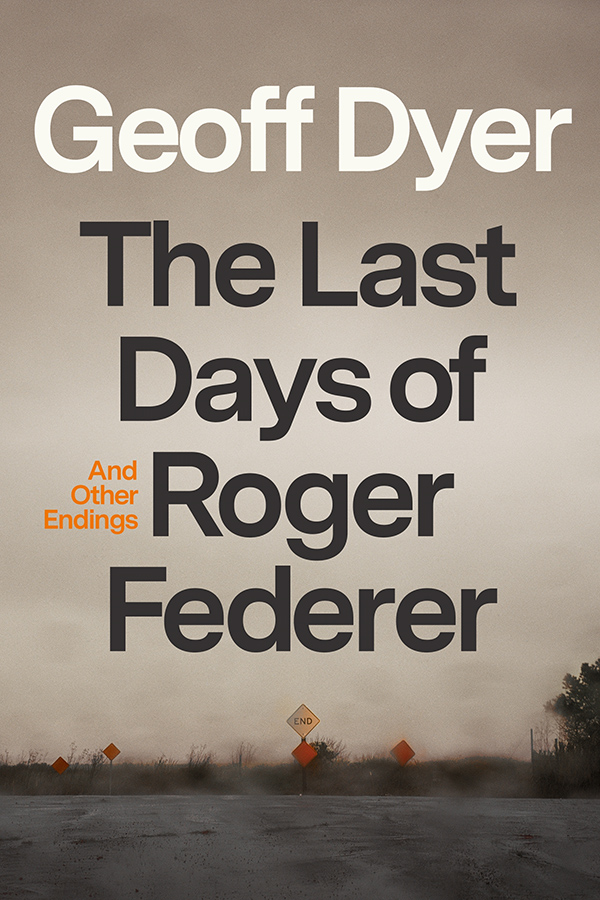
[vc_empty_space height="15px"][vc_column width="1/6"]Melancholy as Dyer’s concerns about death may seem, reading this book is a joyful experience. Greatly aided by his zeal for Federer, Dyer’s exploration into mortality is often propelled into the sunlight. For while Federer is but one character in Dyer’s inquiry into how one’s life as a creator ends, he might also be its most noble. “One of the reasons we love watching Roger,” writes Dyer, “is because of the way...he looks like he is moving within a different, more accommodating dimension of time.” In other words, while none of us can beat death, at least Federer’s tennis holds the potential to alter our experience of impending finality.
As a prelude to Federer’s heroics, Dyer invokes the world-weary Bjorn Borg: “In a high-stakes eruption of zero-sum mathematics and nihilistic calculation he explained to McEnroe that either you were number one in the world or you were nothing.” In contrast to Borg’s binary banality, there was Federer. “Even when Roger was losing, he seemed to really enjoy everything about playing tennis,” Dyer told me. Unlike Borg, imprisoned by his narrow, attrition-based playing style, for the versatile Federer, tennis remained scarcely a chore and more of a game, in sync with what Dyer cites as a principle of Nietzsche’s philosophy: “That the profoundest mind must also be the most frivolous one.” When it comes to a playful spirit, leave it to Federer to experiment with the chip-and-charge return—a tactic that predates World War I—and joyfully rechristen it the SABR.
Then came the delightful surprise, when Federer at the age of 35 won the 2017 Australian Open and Wimbledon. A year later, Federer once again won in Melbourne. “But the real triumph was beyond statistics and calculation,” writes Dyer. “He had again demonstrated that the most efficient way to play tennis was also the most beautiful—and vice versa. Aesthetics and victory could go hand in hand.” Beauty, success, longevity: Does life get any better?
But again, tennis is merely one condiment—although a rather delectable one—in Dyer’s bouillabaisse. Enough of Borg. Federer’s more vivid doppelgänger in this book is Nietzsche. A brilliant philosopher for decades, Nietzsche at the age of 44 suffered a mental and physical breakdown so severe that he was unable to care for himself, dying at the age of 55. As Dyer told me, “He spent the last decade of his life living posthumously.” No such horror awaits Federer.
There remains, though, Dyer’s anguish at what happened to Federer in the 2019 Wimbledon singles final when he served for the title in the fifth set at 8–7, 40–15, only to lose both of those championship points and, eventually, the match. Federer’s painful defeat warrants a comparison to Nietzsche: “To have those two Wimbledon points again, to have done things differently, to have stayed back rather than rushing to the net at 40–30... It’s the exact opposite of the passage in The Gay Science when Nietzsche asks us to imagine a moment so perfect you would live your whole life again, with all its manifold unhappiness and disappointments, in order to relive it through all eternity. Or is it?” Such is Dyer’s sensibility, constantly and overtly questioning his own assertions, much like a dog, chasing its own tail, running down one ball after another, ceaselessly happy. [vc_empty_space height="15px"][vc_column width="1/6"][vc_tweetmeme share_via="racqetmagazine"][vc_column width="1/6"][vc_facebook type="button_count"][vc_column width="1/6"][vc_column width="1/6"][vc_column width="1/6"][vc_column width="1/6"][vc_empty_space height="45px"][vc_column width="1/4"][vc_column width="1/2"]
NOW AVAILABLE
Issue No. 19
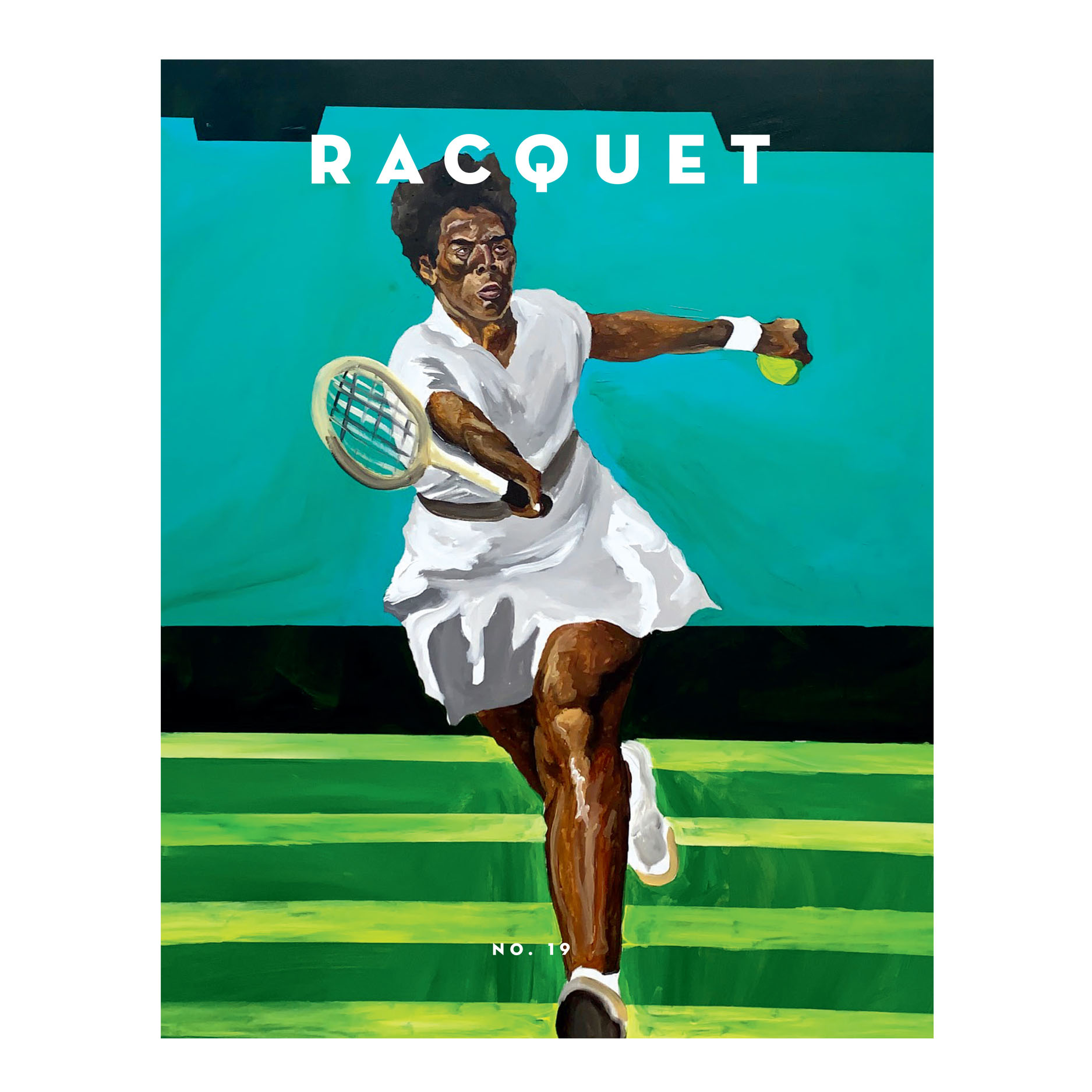
[vc_btn title="BUY NOW" style="outline" shape="square" color="success" size="lg" align="center" button_block="true" link="url:https%3A%2F%2Fracquetmag.com%2Fproduct%2Fissue-no-19%2F|title:GET%20IT%20NOW||"][vc_column width="1/4"]
